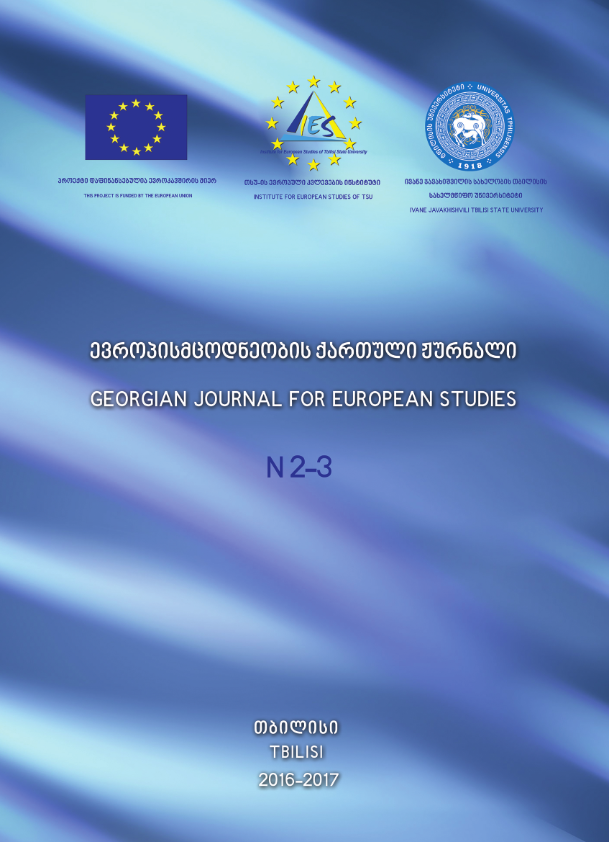Teaching European Studies At Tbilisi Sstate University, Achievements and Challenges
Abstract
The primary goal of this research is to evaluate the experience of Tbilisi State University’s Institute for European Studies in teaching European Studies. The research design focuses on quality management mechanisms introduced at the institute through the TEMPUS INOTLES project, which facilitated the integration of innovative teaching methods. The data covers the evaluation of experiences from various universities and internal assessments of the institute’s needs.
The findings reveal that the initiatives undertaken in European Studies at TSU, such as problem-based learning and the encouragement of international mobility, have significantly enhanced the quality of both the Master’s and PhD programs. The increase in research activities and the systematic implementation of staff training have contributed to improving the overall quality of education.
Key conclusions indicate that the interdisciplinary education system in Georgia is advancing successfully, despite challenges such as faculty workload and the need for legislative reforms. The development of the structure and dissemination of information could maximize the achievements to date. The experience gained by the institute in teaching European Studies not only contributes to local students’ education but also deepens ties with international academic circles and strengthens the university’s internationalization process.
This abstract summarizes the achievements and challenges faced by the institute and offers insights into the ongoing process of aligning Georgian higher education with European standards, while addressing key difficulties that need resolution to sustain progress.


